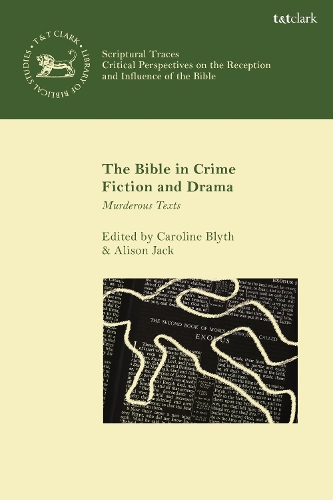
The Bible in Crime Fiction and Drama: Murderous Texts
(Paperback)
Available Formats
Publishing Details
The Bible in Crime Fiction and Drama: Murderous Texts
By (Author) Dr Caroline Blyth
Edited by Dr Alison Jack
Bloomsbury Publishing PLC
T.& T.Clark Ltd
23rd July 2020
United Kingdom
Classifications
Tertiary Education
Non Fiction
Criticism and exegesis of sacred texts
Literary studies: fiction, novelists and prose writers
220.6
Physical Properties
Paperback
208
Width 156mm, Height 234mm
299g
Description
The Bible has always enjoyed notoriety within the genres of crime fiction and drama; numerous authors have explicitly drawn on biblical traditions as thematic foci to explore social anxieties about violence, religion, and the search for justice and truth. The Bible in Crime Fiction and Drama brings together a multi-disciplinary scholarship from the fields of biblical interpretation, literary criticism, criminology, and studies in film and television to discuss international texts and media spanning the beginning of the 20th century to the present day. The volume concludes with an afterword by crime writer and academic, Liam McIvanney. These essays explore both explicit and implicit engagements between biblical texts and crime narratives, analysing the multiple layers of meaning that such engagements can produce cross-referencing Sherlock Holmes with the murder mystery in the Book of Tobit, observing biblical violence through the eyes of Christian fundamentalists in Henning Mankells Before the Frost, catching the thread of homily in the serial murders of Se7en, or analysing biblical sexual violence in light of television crime procedurals. The contributors also raise intriguing questions about the significance of the Bible as a religious and cultural text its association with the culturally pervasive themes of violence, (im)morality, and redemption, and its relevance as a symbol of the (often fraught) location that religion occupies within contemporary secular culture.
Author Bio
Caroline Blyth is Senior Lecturer in Religious Studies at the University of Auckland, New Zealand. Alison Jack is Senior Lecturer and Assistant Principal of New College School of Divinity, University of Edinburgh, UK.
